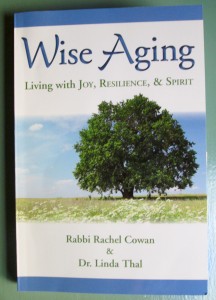Growing up in a small suburban town in northern New Jersey in the 1950s, I observed that my classmates and I fell into three neat, equally divided camps: There were the Protestant kids, like me and my sisters, who attended Bible classes every Thursday afternoon after school, the Catholic kids who had to go to catechism class each week in preparation for their holy communion, and the Jewish kids who went to weekly Hebrew school to learn, among other things, enough Hebrew to get them through their future bar- and bat-mitzvahs.
My memories of the Bible classes I sat through, held in some kindly lady’s basement, are that they were rather entertaining. Colorful, meaningful Bible stories were told with the aid of a felt board and cutout characters that somehow stuck to it — exotic, dramatic stories that have since stuck in my mind. Such as the Old Testament story where God says to Jonah, “I want you to go to Nineveh,” and Jonah answers back, “But I don’t want to go to Nineveh.” So God has a huge whale swallow Jonah whole and then spit him out, still alive, on the shores of the Tigris River in Nineveh. The lesson even a grammar school kid could grasp? There’s no arguing with God.
My Catholic classmates told me a little bit about their catechism classes, where they learned about “faith.” “Faith” meant accepting, without doubting or questioning, all of the teaching of their Church. It meant that wine could become blood and a bread-like wafer could become human flesh in your mouth, and an innocent young girl who had never even had a boyfriend could have a baby and call him God. Hearing this, I was glad I hadn’t been born Catholic because I was sure I could never muster that much faith.
Hebrew school, though, intrigued me the most. What did my Jewish classmates learn there, I wondered, that helped to make them the best students in our class? Why were they never too shy (as I was) to raise their hands and ask questions of our teachers? What made them so bent on excelling in school? I assumed — rightly or wrongly — that it had something to do with what they were learning in their mysterious-to-me Hebrew school, led by their wise rabbis. Ever since then, I confess, I’ve had a secret yearning for a rabbi in my life.
So when I returned to Taos recently after four months in Guanajuato, Mexico, and I was going through my accumulated stacks of mail and came across a just-published book titled Wise Aging: Living with Joy, Resilience, and Spirit, written by a rabbi — and a woman rabbi at that — I saw it as a gift from God, in every sense. I finally had a rabbi in my life! And she, Rabbi Rachel Cowan, and her co-author Dr. Linda Thal, were going to help me on my newfound path to aging wisely.
I read the entire book yesterday afternoon, stretched out on my living room sofa, with the slanting October sun filling the room. What a gift. I didn’t know who had sent this gift to me; there was no note attached. All I knew was that it’s the best book on aging I’ve read in a long, long time, and I must recommend it to everyone. If anyone interested in this topic (and who at this age isn’t?) buys only one helpful book on aging wisely, it should be this one.
“Both of us,” write Cowan and Thal, “have spent most of our adult lives in spiritual exploration, teaching and learning with others, individually and in groups. It was while co-teaching one such group, whose members chose to focus on the spiritual journey of aging, that we began to develop the work that would become the subject of this book. … In writing Wise Aging, we have synthesized our experiences of those early groups with discoveries and insights from teachers and writers of all traditions who have been thinking about aging much longer than we have.”
Although Rabbi Cowan and Dr. Thal rely most heavily on Jewish texts — “because Judaism is the primary spiritual language we speak,” they admit — most of the ideas they present can be found in all the great spiritual traditions, including Buddhism, Christianity, and Islam. In clear, down-to-earth, accessible prose, the authors explore the stages of our lives, the changes in our body, the importance of relationships, the cultivation of our spiritual wellbeing, conscious dying, and more.
Chapter 3, “I am My Body; I am Not My Body,” brought a jolt to me when I saw that I had been quoted. A paragraph from my essay “Youth and Beauty,” published in the online literary journal Persimmon Tree (www.persimmontree.org) was included to illustrate the unexpected benefits of losing one’s youthful (naive) beauty to (wiser) older age.
Perhaps that’s it, I thought: They sent me a copy of the book to thank me. But it is I who must thank them.
My biggest takeaway from reading Wise Aging is this Hebrew prayer-blessing, which I intend to memorize and repeat daily as I walk my wise-aging path: Blessed are You, Adonai our God, who reigns sovereign in the universe, who has given us life, sustained us in life, and brought us to this very minute.
# # #
Wise Aging is published by and available through Behrman House (http://www.behrmanhouse.com), affiliated with the Institute for Jewish Spirituality.


Que bien, la Bonnie! Will look for the book now.
You’ll love it, Te. — xx
Thanks Bonnie, This is a definite necessity for my winter reading list.
You’re welcome, Barbara. I’m sure you’ll love this book. — BB